
Kendal Tinney
@kendalt.bsky.social
Microbiologist and fan of phages 🦠🧬 🧫
PhD candidate in the Barber lab at UOregon. (She/They)
PhD candidate in the Barber lab at UOregon. (She/They)
Reposted by Kendal Tinney
The Long-Term Evolution Experiment has returned home. Led by Professors Richard Lenski (@relenski.bsky.social) and Jeffrey Barrick, this groundbreaking work continues to reveal how bacteria evolve in real time. 12 flasks. 1 legacy.
🔗https://tinyurl.com/f6vjyjvr
🔗https://tinyurl.com/f6vjyjvr

November 10, 2025 at 3:25 PM
The Long-Term Evolution Experiment has returned home. Led by Professors Richard Lenski (@relenski.bsky.social) and Jeffrey Barrick, this groundbreaking work continues to reveal how bacteria evolve in real time. 12 flasks. 1 legacy.
🔗https://tinyurl.com/f6vjyjvr
🔗https://tinyurl.com/f6vjyjvr
Reposted by Kendal Tinney
🚨Job alert!🚨
We are looking for a new lab manager to join our group at the University of Oregon! Applicants with experience in microbiology, evolutionary genetics, or protein biochemistry are especially encouraged to apply. See the link below for more information: barberlab.org/contact/
We are looking for a new lab manager to join our group at the University of Oregon! Applicants with experience in microbiology, evolutionary genetics, or protein biochemistry are especially encouraged to apply. See the link below for more information: barberlab.org/contact/
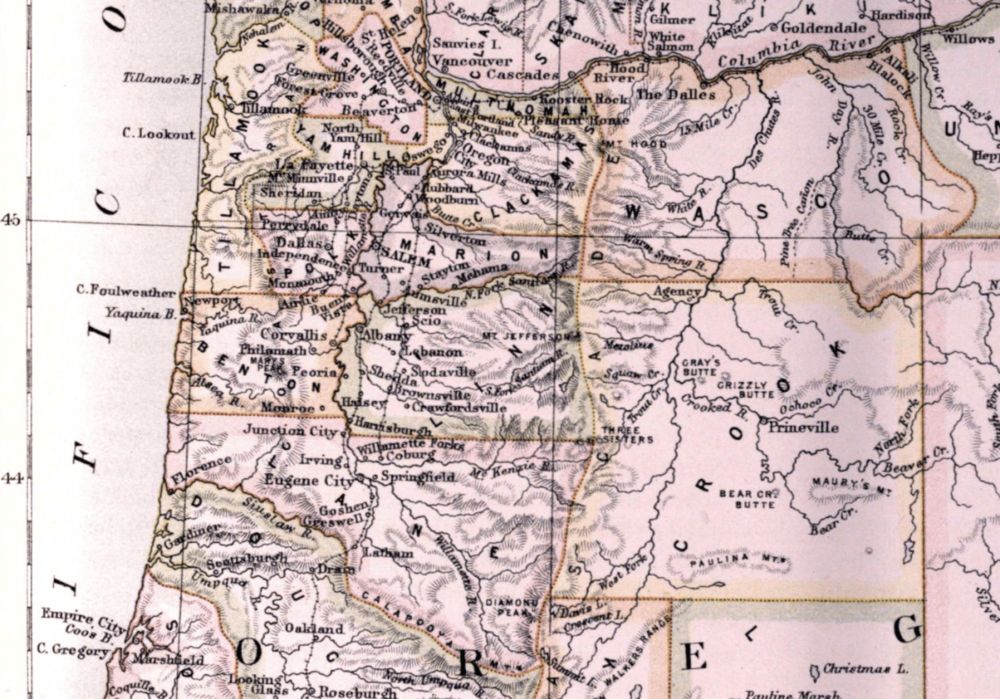
Contact
View of the University of Oregon campus from nearby Hendricks Park Lab Address:322 Pacific Hall5289 University of OregonEugene, OR 97403 Lab Phone:541-346-1537 Joining the lab Lab Manager: We are c…
barberlab.org
September 12, 2025 at 7:17 PM
🚨Job alert!🚨
We are looking for a new lab manager to join our group at the University of Oregon! Applicants with experience in microbiology, evolutionary genetics, or protein biochemistry are especially encouraged to apply. See the link below for more information: barberlab.org/contact/
We are looking for a new lab manager to join our group at the University of Oregon! Applicants with experience in microbiology, evolutionary genetics, or protein biochemistry are especially encouraged to apply. See the link below for more information: barberlab.org/contact/
Reposted by Kendal Tinney
With Jeff Barrick's return to #MSU, the #LTEE was restarted today after a short pause (frozen) for the move.
Today was daily transfer 12,301. With ~6.6 generations per day, they are now at ~82,007 generations.
100,000 generations is fast approaching! Are you ready, #Spartans?
@msumgi.bsky.social
Today was daily transfer 12,301. With ~6.6 generations per day, they are now at ~82,007 generations.
100,000 generations is fast approaching! Are you ready, #Spartans?
@msumgi.bsky.social
September 10, 2025 at 8:54 PM
With Jeff Barrick's return to #MSU, the #LTEE was restarted today after a short pause (frozen) for the move.
Today was daily transfer 12,301. With ~6.6 generations per day, they are now at ~82,007 generations.
100,000 generations is fast approaching! Are you ready, #Spartans?
@msumgi.bsky.social
Today was daily transfer 12,301. With ~6.6 generations per day, they are now at ~82,007 generations.
100,000 generations is fast approaching! Are you ready, #Spartans?
@msumgi.bsky.social
Reposted by Kendal Tinney
Behold! De-extinction! And very very cool biology…
Ancient microbes buried deep in the Siberian permafrost may have managed to survive for 100,000 years – and the secret to their longevity could lie in their protein-repairing genes

We're unlocking how frozen microbes stay alive for 100,000 years
www.newscientist.com
August 25, 2025 at 8:46 PM
Behold! De-extinction! And very very cool biology…
Reposted by Kendal Tinney
Excited to share the latest work by outstanding PhD student @kdc509.bsky.social. This was one of our first forays into experimental evolution and uncovered some cool connections between potassium transport and antimicrobial resistance in S. aureus. Major kudos to Killian!

Evolution of polyamine resistance in Staphylococcus aureus through modulation of potassium transport | mSphere
Staphylococcus aureus is a leading cause of infectious disease-related deaths globally. Understanding factors
that govern adaptation and survival of S. aureus and other pathogens in the host environme...
journals.asm.org
August 22, 2025 at 6:37 PM
Excited to share the latest work by outstanding PhD student @kdc509.bsky.social. This was one of our first forays into experimental evolution and uncovered some cool connections between potassium transport and antimicrobial resistance in S. aureus. Major kudos to Killian!
Reposted by Kendal Tinney
Zip "prevents internalization and destruction of newly released phage progeny, a phenomenon that we call the anti-Kronos effect after the Greek god who consumed his offspring. Zip activity promotes the accumulation of free phages in bacterial lysogen communities, thereby enhancing viral spread."
Prophages block cell surface receptors to preserve their viral progeny www.nature.com/articles/s41...
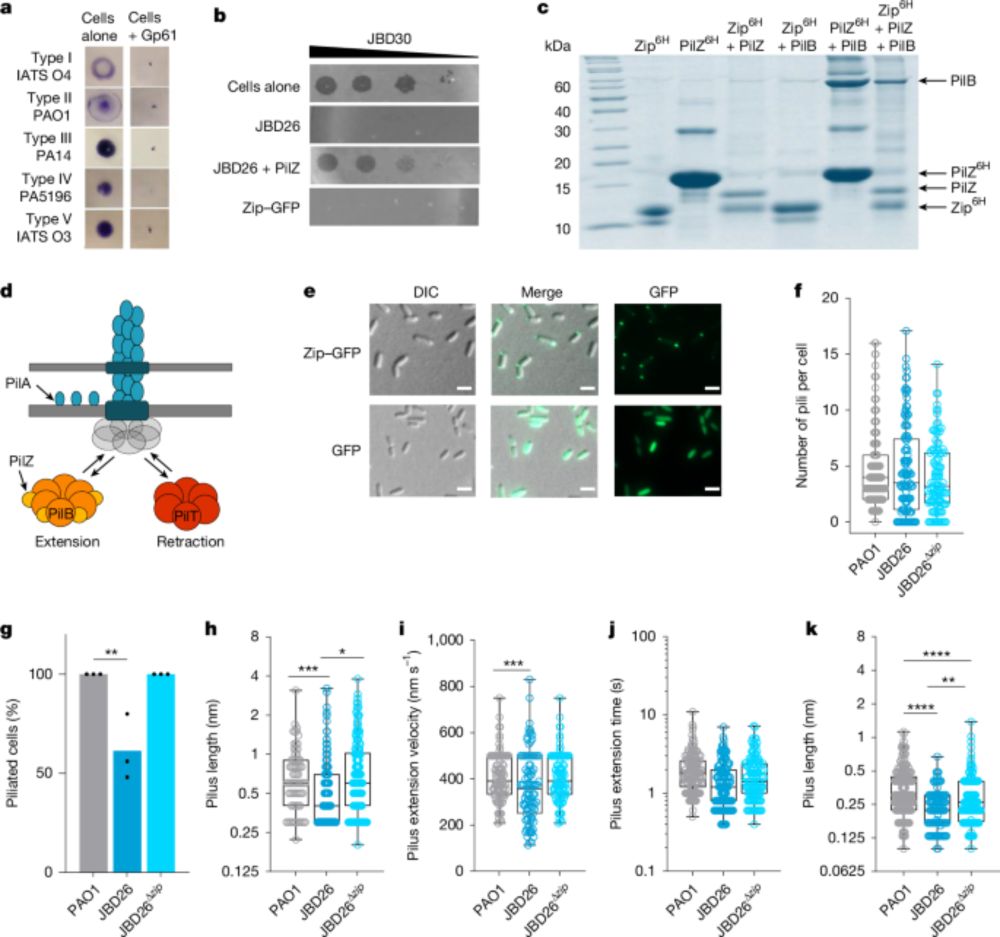
Prophages block cell surface receptors to preserve their viral progeny - Nature
Zip promotes the accumulation of free phages in bacterial lysogen communities, safeguarding phage progeny.
www.nature.com
July 16, 2025 at 6:00 PM
Zip "prevents internalization and destruction of newly released phage progeny, a phenomenon that we call the anti-Kronos effect after the Greek god who consumed his offspring. Zip activity promotes the accumulation of free phages in bacterial lysogen communities, thereby enhancing viral spread."
Reposted by Kendal Tinney
Still on a science high after an incredible Microbial Population GRS/GRC. Honored to have been able to talk about my work. Grateful for all the amazing feedback, ideas, and inspiring conversations—especially from the brilliant scientists whose papers I’ve long admired. Can’t wait for the next one!
Looking forward to seeing everyone, new and old, at the Microbial Population Biology GRS + GRC in just a couple days!
go.bsky.app/GGxRjzC
go.bsky.app/GGxRjzC
July 16, 2025 at 10:21 PM
Still on a science high after an incredible Microbial Population GRS/GRC. Honored to have been able to talk about my work. Grateful for all the amazing feedback, ideas, and inspiring conversations—especially from the brilliant scientists whose papers I’ve long admired. Can’t wait for the next one!
A wild dinosaur sighting in the lab @plasmidsaurus.bsky.social

July 17, 2025 at 1:23 AM
A wild dinosaur sighting in the lab @plasmidsaurus.bsky.social
Reposted by Kendal Tinney
The science was cutting edge, and the company was unparalleled- thank you everyone for such a welcoming and thrilling #GRCMicroPop! Looking forward to cyberstalking all your google scholar profiles ❤️
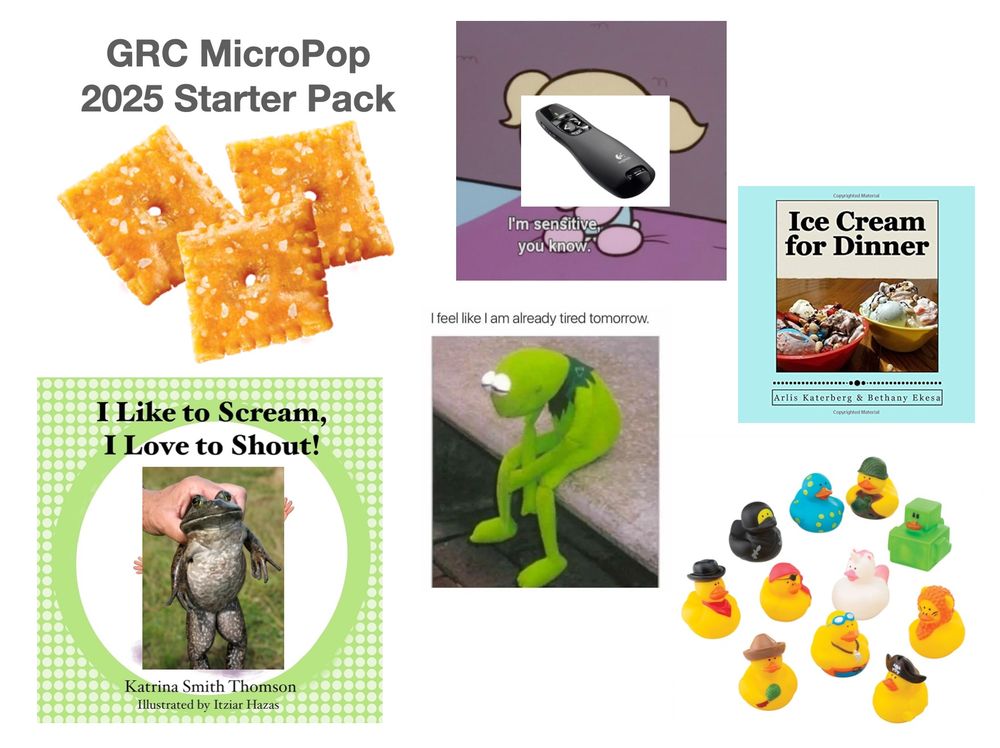
July 11, 2025 at 5:30 PM
The science was cutting edge, and the company was unparalleled- thank you everyone for such a welcoming and thrilling #GRCMicroPop! Looking forward to cyberstalking all your google scholar profiles ❤️
Not everyone gets to meet their hero’s… but there is a lucky few @vscooper.micropopbio.org @emmajoycarlson.bsky.social @asm.org #GRCMicroPop
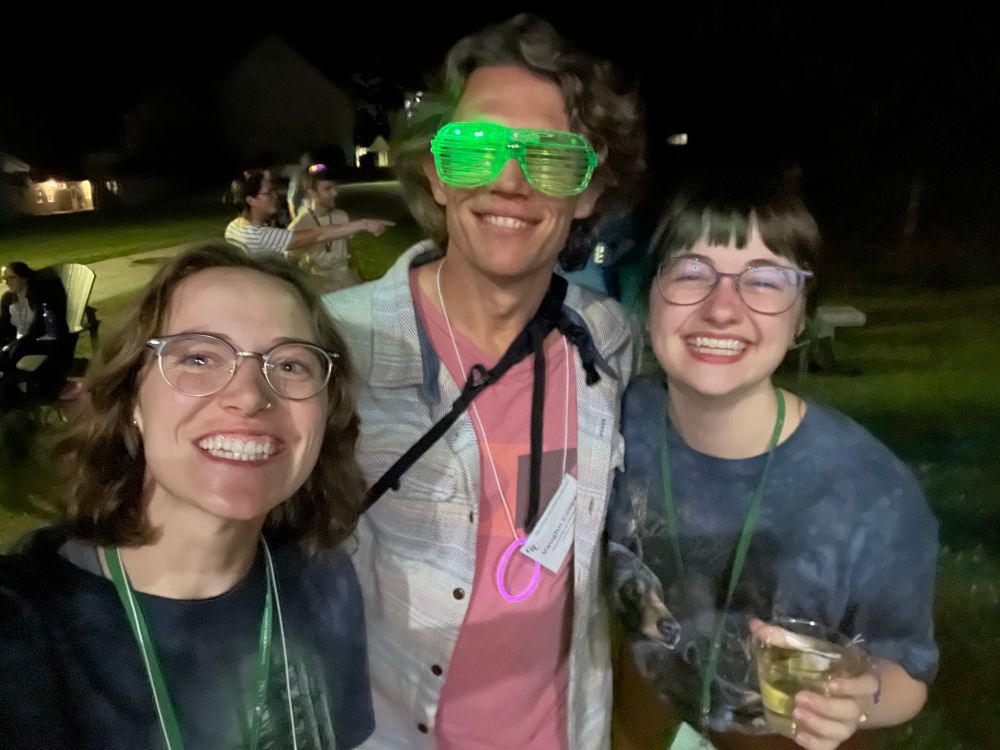
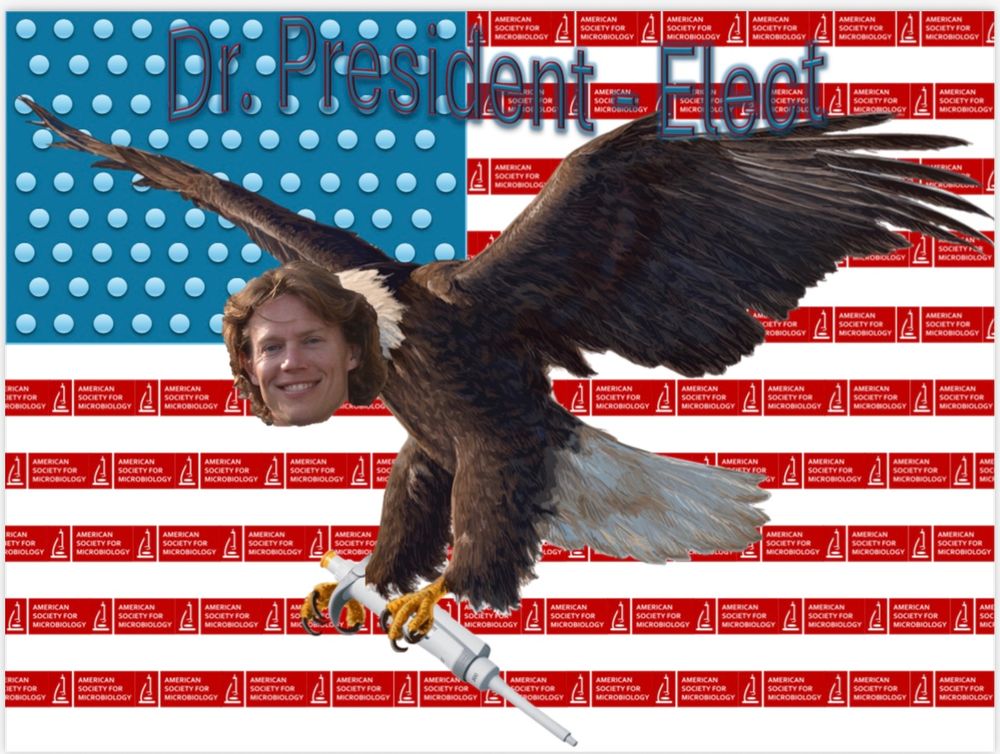
July 11, 2025 at 12:55 PM
Not everyone gets to meet their hero’s… but there is a lucky few @vscooper.micropopbio.org @emmajoycarlson.bsky.social @asm.org #GRCMicroPop
Reposted by Kendal Tinney
Excited to share that our story on S. aureus antagonism by Malassezia is live today in Current Biology! The paper has changed a lot since the preprint with the very exciting addition of having identified the antimicrobial effector generated by M. sympodialis.
authors.elsevier.com/c/1kwzj3QW8S...
authors.elsevier.com/c/1kwzj3QW8S...
authors.elsevier.com
April 14, 2025 at 5:33 PM
Excited to share that our story on S. aureus antagonism by Malassezia is live today in Current Biology! The paper has changed a lot since the preprint with the very exciting addition of having identified the antimicrobial effector generated by M. sympodialis.
authors.elsevier.com/c/1kwzj3QW8S...
authors.elsevier.com/c/1kwzj3QW8S...
becoming an almond mom - feeding my bacteria nutrient limited media
March 10, 2025 at 8:22 PM
becoming an almond mom - feeding my bacteria nutrient limited media
READ MY BESTIES NEW PREPRINT - VERY IMPORTANT
New preprint! We find a novel signal of positive selection in georeferenced genotype data, then use this signal to identify in-progress selective sweeps in the malaria vector Anopheles gambiae:
www.biorxiv.org/content/10.1...
www.biorxiv.org/content/10.1...

Sweeps in space: leveraging geographic data to identify beneficial alleles in Anopheles gambiae
As organisms adapt to environmental changes, natural selection modifies the frequency of non-neutral alleles. For beneficial mutations, the outcome of this process may be a selective sweep, in which a...
www.biorxiv.org
February 10, 2025 at 7:39 PM
READ MY BESTIES NEW PREPRINT - VERY IMPORTANT

